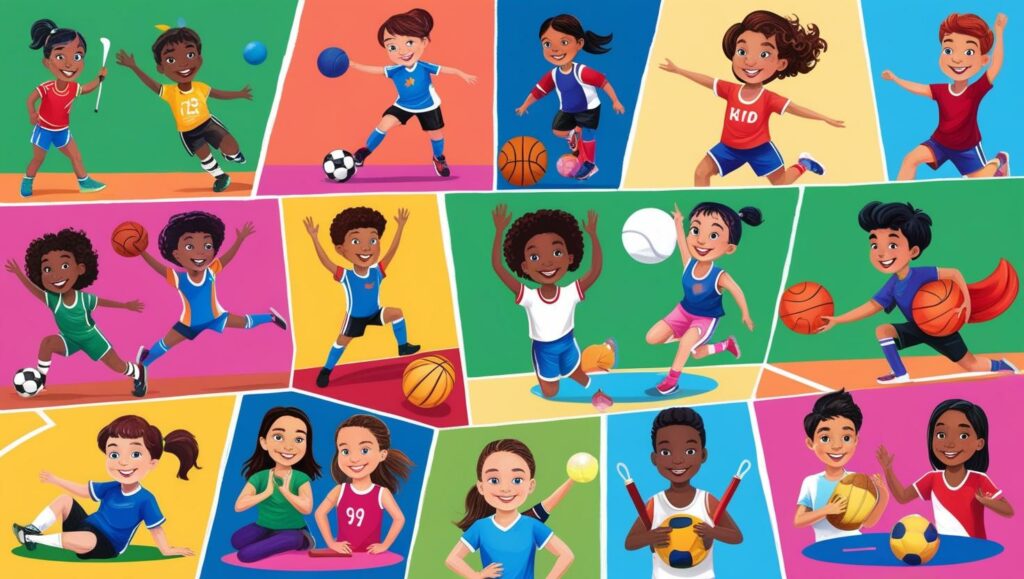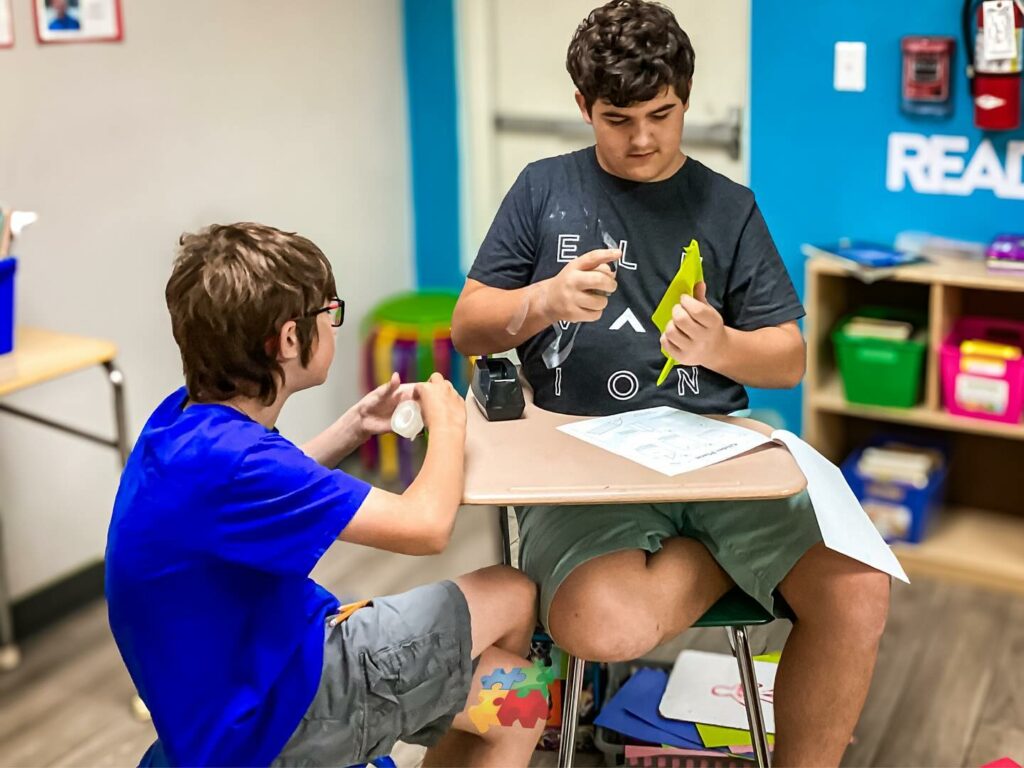Raising a neurodivergent child means walking a path filled with challenges and beautiful, unexpected victories. One of the most powerful tools parents and caregivers can use on that journey is creative expression and physical activity.
For children on the autism spectrum — and those with other neurodivergent profiles — opportunities in art and sports are far more than just hobbies. They are bridges to communication, confidence, connection, and inclusion (Autism Speaks, 2024).

Why Art and Sports Matter for Neurodivergent Kids
Children on the spectrum often experience the world through a unique sensory lens. Traditional communication and socialization methods may not always come naturally. However, creative outlets like art and sports provide non-verbal ways to express emotions, foster relationships, and build essential life skills (National Autism Association, 2023).
Art allows children to:
- Express complex feelings without words
- Strengthen fine motor skills
- Boost confidence through creativity
- Foster focus and patience
Sports empower children to:
- Develop teamwork and social interaction skills
- Improve coordination and body awareness
- Experience the joy of play without pressure
- Build resilience through challenge and perseverance (CDC, 2024)
And most importantly, both provide a sense of belonging.

The Parker Foundation: A Grassroots Mission Changing Lives
In Brevard County, one mom saw a need and chose to act. The Parker Foundation’s co-founder, Melissa Parker, has created a space where neurodivergent children aren’t just accommodated — they’re celebrated (Parker Foundation, 2024).
Melissa’s journey began as a mom seeking connection and opportunity for her son, Brendan, who was diagnosed with autism at age four. What started as a local effort has grown into a thriving community initiative that’s inspiring families nationwide.
Speak Through Sports | Speak Through Arts | Speak Through Education
The Parker Foundation offers three core programs designed to meet neurodivergent kids where they are (Parker Foundation, 2024):
- Speak Through Sports — Inclusive sports teams pair neurodivergent children with peer “buddies,” fostering teamwork and building social skills.
- Speak Through Arts — Creative expression is encouraged through inclusive art programs and innovative STEAM (Science, Technology, Engineering, Art, and Math) projects.
- Speak Through Education — Parent support groups, advocacy initiatives, and community education help build resources and connections.

The Buddy Program: Building Friendships That Last
One of the Parker Foundation’s most impactful contributions is its Buddy Program. This initiative pairs neurodivergent children with neurotypical peers, building friendships rooted in empathy, understanding, and inclusion (Parker Foundation, 2024).
Even more powerful — many children who once needed buddies grow into mentors themselves, becoming Buddy Ambassadors. This full-circle moment shows the transformative power of inclusion and advocacy.
How You Can Get Involved
Melissa Parker’s message to families everywhere is simple — “You don’t need a big budget or a building to make an impact” (Parker Foundation, 2024).
Here’s how you can get started:
- Start a Buddy Program in your local community
- Partner with local sports leagues or art studios for inclusive events
- Reach out to the Parker Foundation for mentorship and resources
- Join their “Hey Mama” retreats or parent meet-ups for connection and support
Final Thoughts
In a world that sometimes focuses too much on what children can’t do, The Parker Foundation reminds us to focus on what they can.
Art and sports are powerful tools not just for expression but also for belonging. With organizations like The Parker Foundation leading the way, neurodivergent children are finding their place—and their voice—on the field, in the studio, and in our hearts.
References
- Autism Speaks. (2024). Sports and Autism: The Benefits of Play. Retrieved from https://www.autismspeaks.org/sports-autism-benefits
- CDC. (2024). Autism Spectrum Disorder (ASD): Physical Activity and Children with Autism. Retrieved from https://www.cdc.gov/ncbddd/autism/facts.html
- National Autism Association. (2023). Art Therapy and Autism. Retrieved from https://nationalautismassociation.org/resources/art-therapy/
- The Parker Foundation for Autism and Child Development. (2024). Retrieved from https://parkerfoundationfl.org/
Related Blogs on PamelaFurr.com
For parents, caregivers, and educators looking for more tools to support neurodivergent children, explore these helpful resources on PamelaFurr.com:
- Sensory Processing and Meltdown Management: A Guide for Parents, Educators, and Caregivers
Learn how sensory activities can help children manage overwhelming situations and regulate their emotions. - Helping Your Child Overcome Anxiety Through Sensory Play
Discover the benefits of sensory play in reducing anxiety and supporting emotional health. - Parenting with Empathy: Understanding Your Child’s Triggers
A practical guide to recognizing sensory and emotional triggers and responding with compassion and understanding. - How to Build a Sensory-Friendly Space at Home
Step-by-step instructions for creating a calming, supportive environment tailored to your child’s sensory needs. - Empowering Neurodivergent Children Through Creative Expression
Explore how art and creativity foster communication, confidence, and connection in neurodivergent children.

